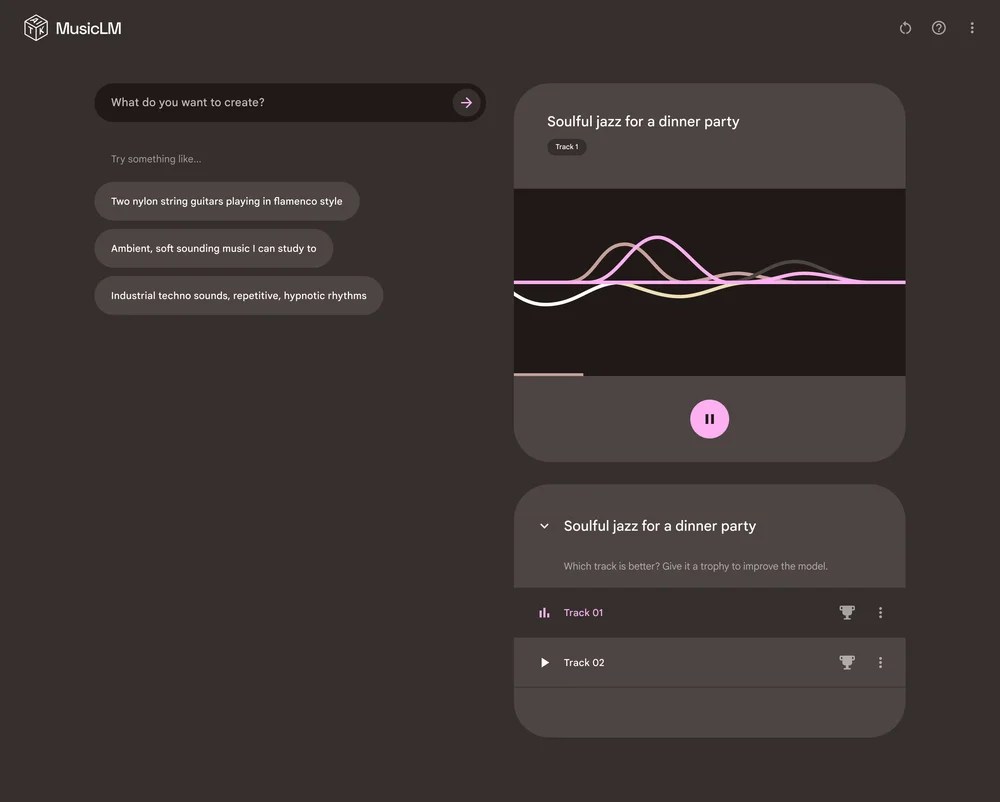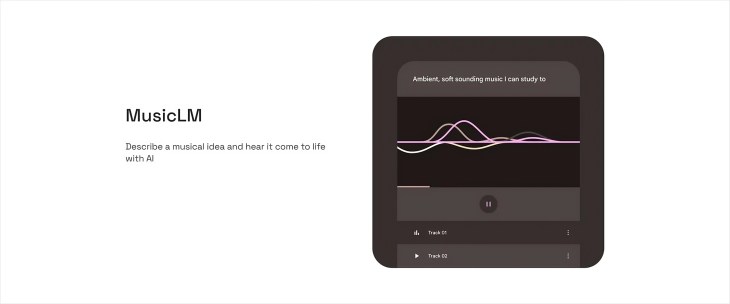Google today released MusicLM, a new experimental AI tool that can turn text descriptions into music. Available in the AI Test Kitchen app on the web, Android or iOS, MusicLM lets users type in a prompt like “soulful jazz for a dinner party” or “create an industrial techno sound that is hypnotic” and have the tool create several versions of the song.
Users can specify instruments like “electronic” or “classical,” as well as the “vibe, mood, or emotion” they’re aiming for, as they refine their MusicLM-generated creations.
When Google previewed MusicLM in an academic paper in January, it said that it had “no immediate plans” to release it. The coauthors of the paper noted the many ethical challenges posed by a system like MusicLM, including a tendency to incorporate copyrighted material from training data into the generated songs.
But in the intervening months, Google says it’s been working with musicians and hosting workshops to “see how [the] technology can empower the creative process.” One of the outcomes? The version of MusicLM in AI Test Kitchen won’t generate music with specific artists or vocals. Make of that what you will.
It seems unlikely, in any case, that the broader challenges around generative music will be easily remedied.
In 2020, Jay-Z’s record label filed copyright strikes against a YouTube channel, Vocal Synthesis, for using AI to create Jay-Z covers of songs like Billy Joel’s “We Didn’t Start the Fire.” After initially removing the videos, YouTube reinstated them, finding the takedown requests were “incomplete.”
But deepfaked music still stands on murky legal ground.

Image Credits: Google
Increasingly, homemade tracks that use generative AI to conjure familiar sounds that can be passed off as authentic, or at least close enough, have been going viral. Music labels have been quick to flag them to streaming partners, citing intellectual property concerns. And they’ve generally been victorious in contrast to the Jay-Z case — Spotify removed tens of thousands of AI-generated songs from startup Boomy over the past month following a complaint from Universal Music Group.

